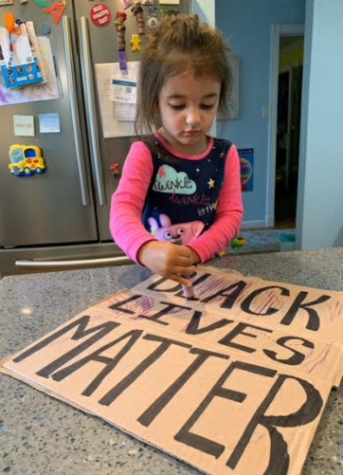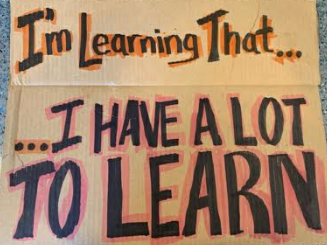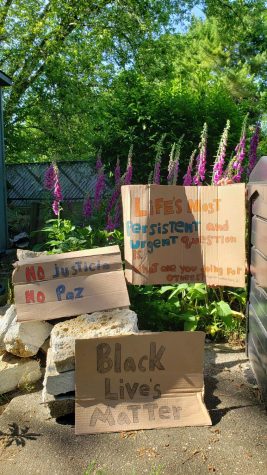Op-Ed: We Should All Agree Black Lives Matter
June 10, 2020
Black Americans are three times more likely to die at the hands of police than white Americans, and 99% of killings by police officers from 2013-2018 have not resulted in any officers being charged with a crime, as stated by mappingpoliceviolence.org. These statistics should be deeply disturbing to everyone who reads them.
The constant discrimination and mistreatment that black people have dealt with at the hands of officers and the legal system is unacceptable. There are many deaths that have occurred that have not received justice in our courts. Black Lives Matter is an international human rights movement which campaigns against violence and racism directed towards black people. It seeks to make a necessary change in the world.

George Floyd, one of many victims of police brutality, had his life taken away while in the custody of four Minneapolis police officers. For several minutes, a caucasian police officer of 19 years, Derek Chauvin, knelt on Floyd’s neck while he yelled, “I can’t breathe.”
Surrounding witnesses filmed the 9-minute stint and shared it on social media, to the disgust and horror of the public. Chauvin has since been arrested and charged with second-degree murder, third-degree murder, and manslaughter. The other three officers are also now facing charges of accomplice to murder.
An independent autopsy confirmed that Floyd’s death was a result of asphyxiation, serving as evidence of Chauvin’s obvious guilt. We can only hope that Floyd’s family will receive comfort in the knowledge of a sentence for Chauvin and the other three officers who abetted him.
Since then, protests held in Floyd’s honor under the banner of the BLM movement have been met with violence. Police officers have fired rubber bullets at unarmed protestors, kicked a pregnant woman in the gut (causing a miscarriage), used mace on a 10-year-old child, and pepper-sprayed a homeless man who was sleeping on the street. Footage of these incidents have spurred more public outcry and calls to defund the police, who seem to be taking their jobs way too far.

Speaking of the protests, student Gen Bonilla explained that they were “very necessary.”
“We live in a country that oppresses people of color. The Black Lives Matter protests aren’t only about police brutality, but also the systematic oppression and injustice black people face. It’s crucial to have these protests so we can strive toward equality,” Bonilla said.
Although there have been many peaceful protests around the country, there have also been instances of looting and rioting that have ruined store fronts and damaged cities. It’s been a key complaint among those who criticize the Black Lives Matter organization.
However, Biology teacher Kim Dirkschneider explained that these riots should be distinguished from the protests themselves, and implies that the poor decisions of a few should not outweigh the importance of the movement as a whole.
“I am in full support of this human rights movement as it has a very strong message that needs to be conveyed. I am hopeful that the looting and rioting will go away and the real protests can rise above and finally be heard,” Dirkshneider said.

George Floyd’s case isn’t the only one circulating the media and causing outrage. It reminds the public of a host of other crimes in which race played a part in the mistreatment of an individual, and points to the racial disparities in our jails and the legal system in general. Breonna Taylor, Tony McDade, Ahmaud Arbery, Darrius Steward, David McAtee, and many more victims still await justice.
Martin Luther King Jr. once said, “freedom is never voluntarily given by the oppressor. It must be demanded by the oppressed.” We are a community demanding justice for the lives that were taken from families without due process of law. Aside from attending protests, having genuine conversations with friends about race and donating to organizations that defend the rights of people of color are just two ways that anyone, even young people, can help. No justice, no peace.


